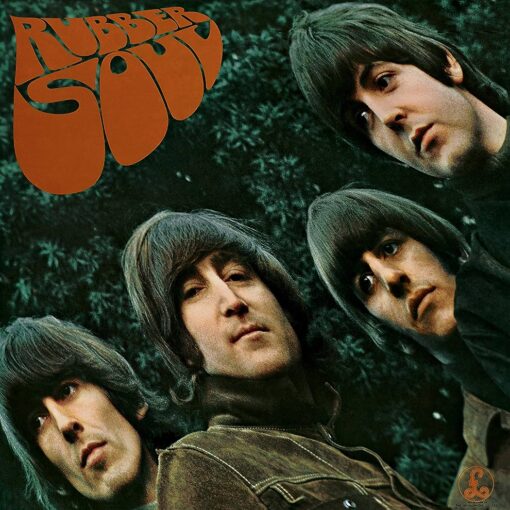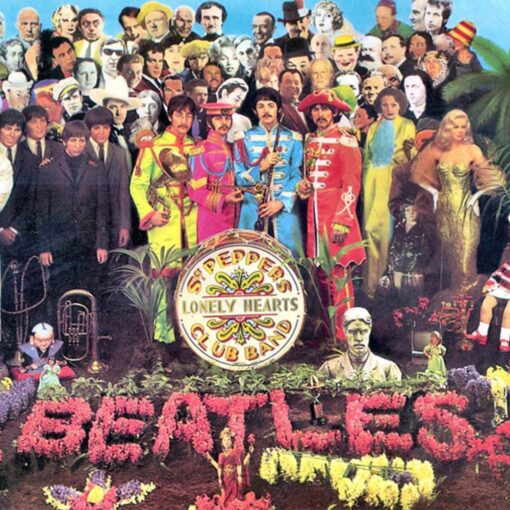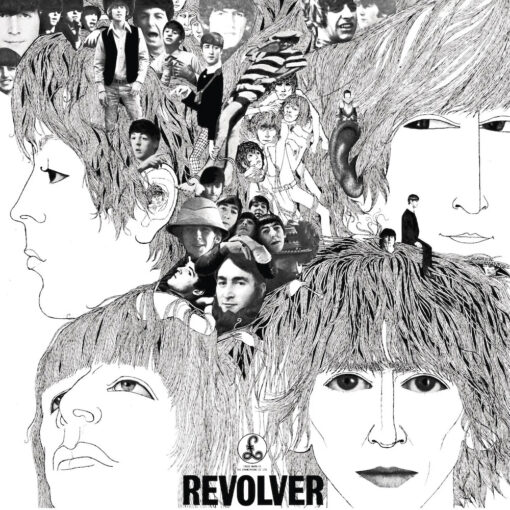- Published on 1968
- Author: Lennon/McCartney
- Track 4 on “The Beatles – White Album“
- Track 17 on “The Beatles 1967-1970” (Blue Album)
JOHN 1980: “I might’ve given him a couple of lyrics, but it’s his song, his lyric.”
PAUL 1984: “A fella who used to hang around the clubs used to say, (Jamaican accent) ‘Ob-la-di, ob-la-da, life goes on,’ and he got annoyed when I did a song of it, ‘cuz he wanted a cut. I said, ‘Come on, Jimmy, it’s just an expression. If you’d written the song, you could have had a cut.’ He also used to say, ‘Nothin’s too much, just outta sight.’ He was just one of those guys who had great expressions, you know.”
About “Ob-La-Di, Ob-La-Da”
“Ob-La-Di, Ob-La-Da” was written by Paul McCartney and appeared on their 1968 double album “The Beatles,” commonly known as the “White Album.” It was primarily composed by Paul McCartney. The phrase “Ob-La-Di, Ob-La-Da” is derived from a saying McCartney had heard in the nightlife scene in London’s Soho district. The song reflects a cheerful and optimistic outlook on life, portraying everyday events in a positive light. The song was recorded in July 1968 at EMI Studios in London, UK. The recording process was marked by its intricate arrangement and meticulous attention to detail. Producer George Martin played a significant role in helping the band achieve the desired sound.
“Ob-La-Di, Ob-La-Da” features a mix of rock, pop, and ska influences. The use of a ska beat gives the song a lively and infectious rhythm. The melody is characterized by its catchy sing-along quality, and the lyrics contribute to its memorable nature. The song prominently features McCartney on vocals and bass guitar, John Lennon on backing vocals and acoustic guitar, George Harrison on lead guitar, and Ringo Starr on drums. Additional instruments include a honky-tonk piano played by McCartney, creating a distinctive sound.
Upon its release, “Ob-La-Di, Ob-La-Da” received mixed reviews from music critics. Some praised its infectious melody and upbeat nature, while others criticized it for being too lightweight. Despite the critical reception, the song became a commercial success and has since become one of The Beatles’ most well-known and beloved tracks. “Ob-La-Di, Ob-La-Da” has been covered by numerous artists over the years, attesting to its enduring popularity and influence on popular music. It has also been featured in various movies, TV shows, and commercials, further cementing its place in popular culture.
The Beatles never performed “Ob-La-Di, Ob-La-Da” live as a group. However, Paul McCartney has included the song in his solo concerts, delighting fans with its infectious melody. In 2018, Paul McCartney revealed that John Lennon had a strong dislike for the song during the recording sessions. Lennon reportedly found the song too cloying and sing-songy.
“Ob-La-Di, Ob-La-Da” stands as one of The Beatles’ iconic tracks, known for its infectious melody and optimistic outlook on life. Despite initial mixed reviews, it has become a classic in the band’s discography, demonstrating the enduring power of McCartney’s songwriting and the band’s ability to create music that resonates across generations.
Meaning of “Ob-La-Di, Ob-La-Da”
The lyrics of “Ob-La-Di, Ob-La-Da” tell a story about a couple, Desmond and Molly Jones, and their experiences in life. The song conveys a message of embracing life’s ups and downs with a positive attitude and making the most out of any situation. It emphasizes the idea that life goes on, regardless of the challenges one may face.
The lyrics suggest a carefree and optimistic outlook, celebrating everyday moments and the resilience of the human spirit. The repeated refrain of “Ob-La-Di, Ob-La-Da, life goes on” reinforces the idea that life continues and it’s important to roll with the punches.
Overall, the song’s message can be summarized as an encouragement to enjoy life, appreciate the small pleasures, and not get bogged down by setbacks. It’s a testament to the enduring nature of human happiness and the ability to find joy even in the midst of adversity.
Personnel
The Beatles
- Paul McCartney – vocal, electric bass, acoustic bass, handclaps, vocal percussion
- John Lennon – piano, backing vocal, handclaps, vocal percussion
- George Harrison – acoustic guitar, backing vocal, handclaps, vocal percussion
- Ringo Starr – drums, bongos, maracas, other percussion, handclaps, vocal percussion
Additional musicians
- Three unnamed session players – saxophones
- George Martin – woodwind arrangement


